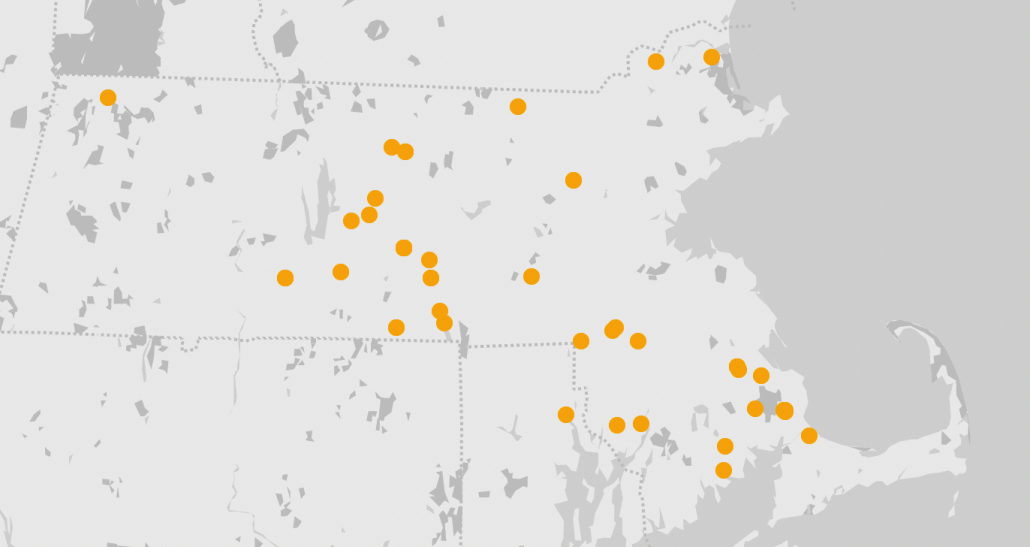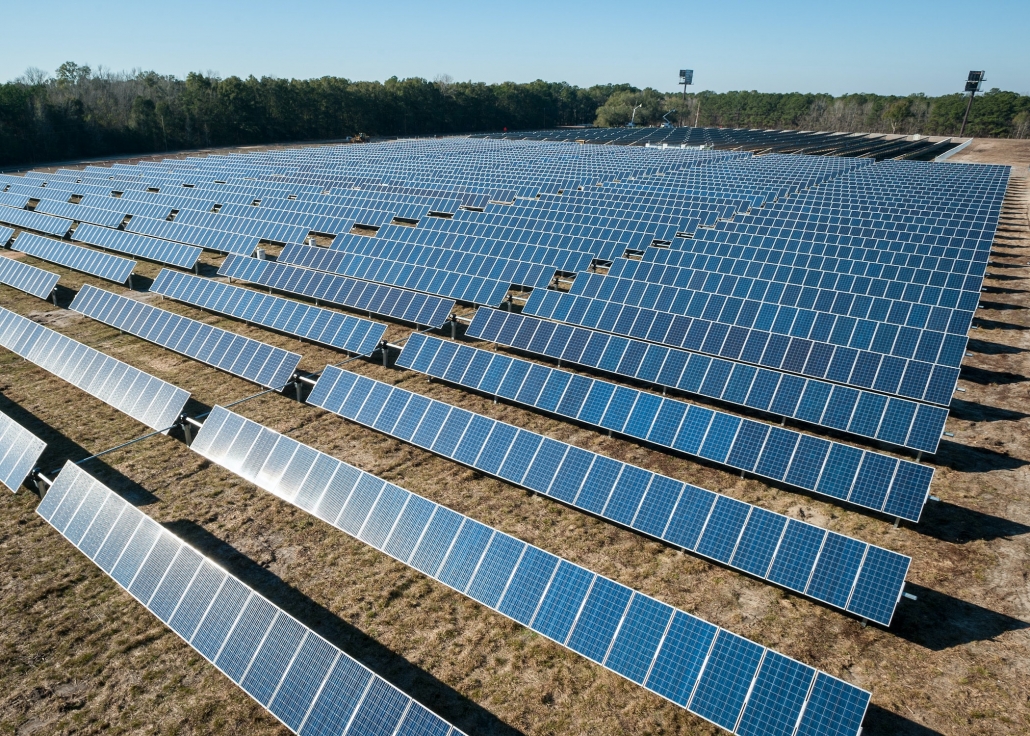What is Community Solar?
The goal of community solar is to provide clean energy to places that cannot directly install solar panels on the roof. Because many houses are not fit for solar technology, solar farms allow these homes to take advantage of the benefits of solar power. Additionally, other entities like non-profits or businesses can also purchase community solar for their site.
In terms of location, community solar arrays are usually placed in remote areas. These solar farms must have space for enough solar panels to provide electricity for thousands of homes.
Massachusetts has many community solar farms. In fact, it is one of the leaders in community solar right now; and is one of the top four states with largest community solar markets! To the right is a map of all the solar farms in Massachusetts from Clearway Community Solar. Click here to read about these farms.
How do Solar Farms Work?
Solar farms can work in two ways. First, customers can own a portion of the solar array. With this option, customers receive a bill credit for the portion of the solar array that they own. So, if a customer buys 5 panels from an 100 panel array, they would receive an energy credit for the equivalent that those 5 panels produced.
Customers can also “lease” or “subscribe” to get solar energy. This means that a customer essentially signs up to pay a reduced price on their electricity bill, since the clean energy is cheaper than traditional electricity.
Off-site vs. On Site
Off-site is the typical set up for a community solar project. This normally consists of a large solar array where businesses, households, etc. buy/lease portions of the array for energy credits. These sites are governed by state policies or local utility rules, depending on if the state has community solar regulations.
In some cases, many families share one rooftop solar array. This could be the case in an apartment building or a condominium complex. This is considered on-site solar. Read more from energy.gov here.
So, community solar is a good option for those who don’t own their own home or can’t install solar panels on their home. It allows these customers to still take advantage of some of the benefits of clean energy. However, certain tax credits might not apply under community solar, since customers don’t own the system. Read more about other solar policies and how they are affected by community solar here.
However if you are able to install solar panels on your home, you can take advantage of all the benefits andtax incentives that are offered in Massachusetts and in the US. Contact us today for a free solar quote!




